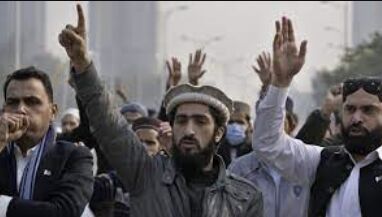Pakistan's Retaliatory Airstrikes in Iran Heighten Tensions in the Middle East
Pakistan conducted retaliatory airstrikes in Iran, targeting Baluch insurgents. The strikes killed at least nine people, prompting condemnations from the Iranian Ministry of Foreign Affairs and raising concerns about potential regional conflict.
Pakistan carried out retaliatory airstrikes in Iran early Thursday, targeting training camps belonging to Baluch insurgents in southeastern Iran. The strikes resulted in the deaths of at least nine people. Pakistan described the action as a series of highly coordinated and specifically targeted precision military strikes against terrorist hideouts in the Sistan-o-Baluchistan province of Iran. The Iranian Ministry of Foreign Affairs condemned the attacks, calling them unbalanced and unacceptable, and emphasized that Iran considers the security of its people and territorial integrity as a red line.
🇵🇰⚡️🇮🇷 China, Saudi Arabia & Qatar is mediating between Iran & Pakistan.
— {Matt} $XRPatriot (@matttttt187) January 19, 2024
Iran has reportedly put forward plans to counter retaliate against Pakistan.
❌ 𝐂𝐡𝐢𝐧𝐚 𝐡𝐚𝐬 𝐫𝐞𝐩𝐨𝐫𝐭𝐞𝐝𝐥𝐲 𝐭𝐨𝐥𝐝 𝐛𝐨𝐭𝐡 𝐬𝐢𝐝𝐞𝐬 𝐧𝐚𝐦𝐞𝐥𝐲 𝐈𝐫𝐚𝐧 𝐚𝐧𝐝 𝐏𝐚𝐤𝐢𝐬𝐭𝐚𝐧 𝐭𝐡𝐚𝐭…
The Pakistani Ministry of Foreign Affairs stated that the action is a manifestation of Pakistan's unflinching resolve to protect and defend its national security against all threats and emphasized that progressing through dialogue and cooperation is crucial for confronting common challenges including the menace of terrorism. This escalation comes amid Israel's ongoing war with Hamas in the neighboring Gaza Strip and growing concerns about potential regional conflict. The Iranian strikes in Pakistan and Iraq were a response to recent deadly terrorist attacks in Iran, prompting a strong condemnation from Islamabad and downgrading diplomatic ties between the two countries.
These airstrikes create a dangerous situation, raising the danger of further escalation amidst upheaval in the already tense Middle East. It also comes just days before general elections in Pakistan, slated for February 8, raising concerns about the potential impact on the upcoming polls and the country's failing economy. In the wake of the region's newfound peace and stability after protracted wars and instability, countries have called for restraint and dialogue to resolve disputes through diplomatic channels.




